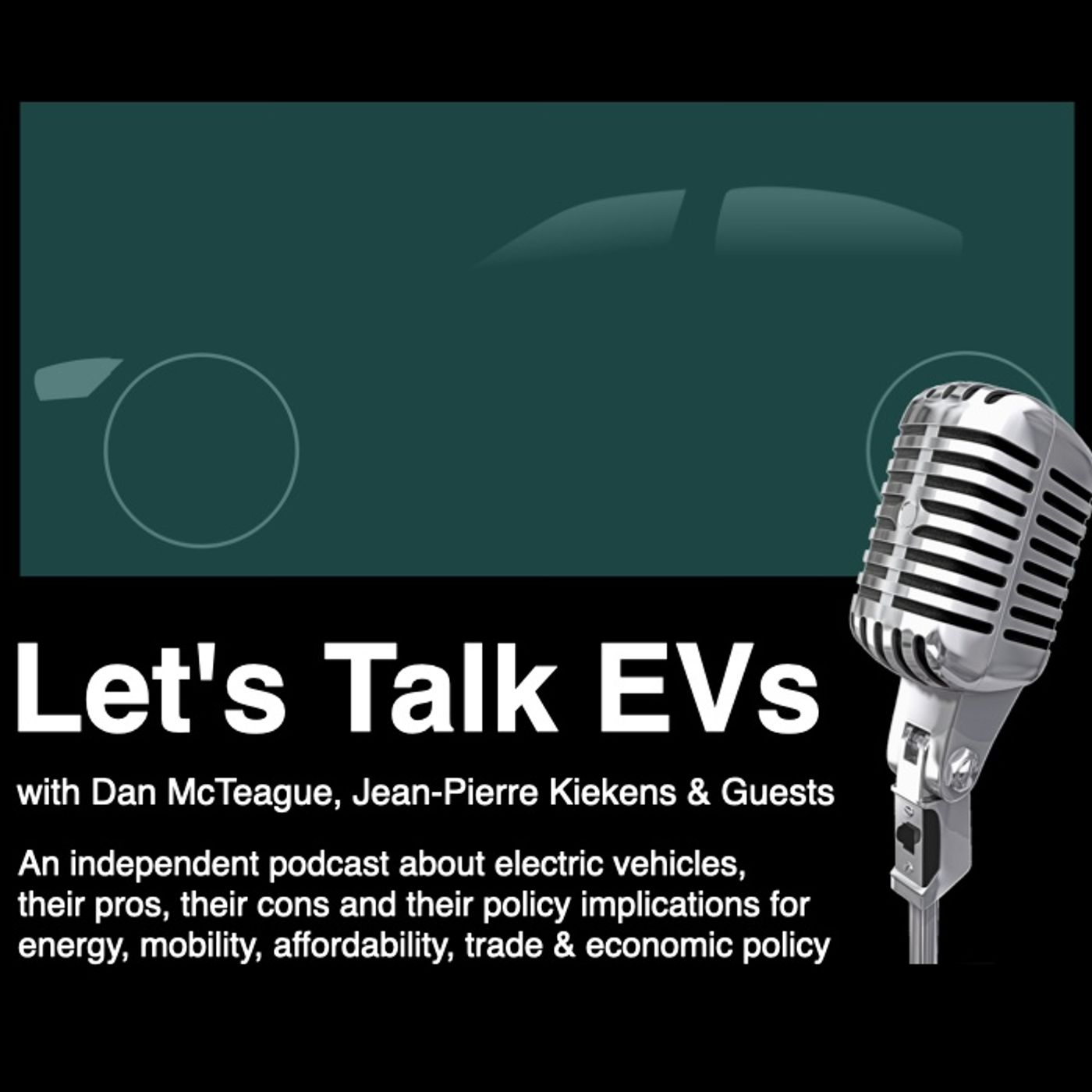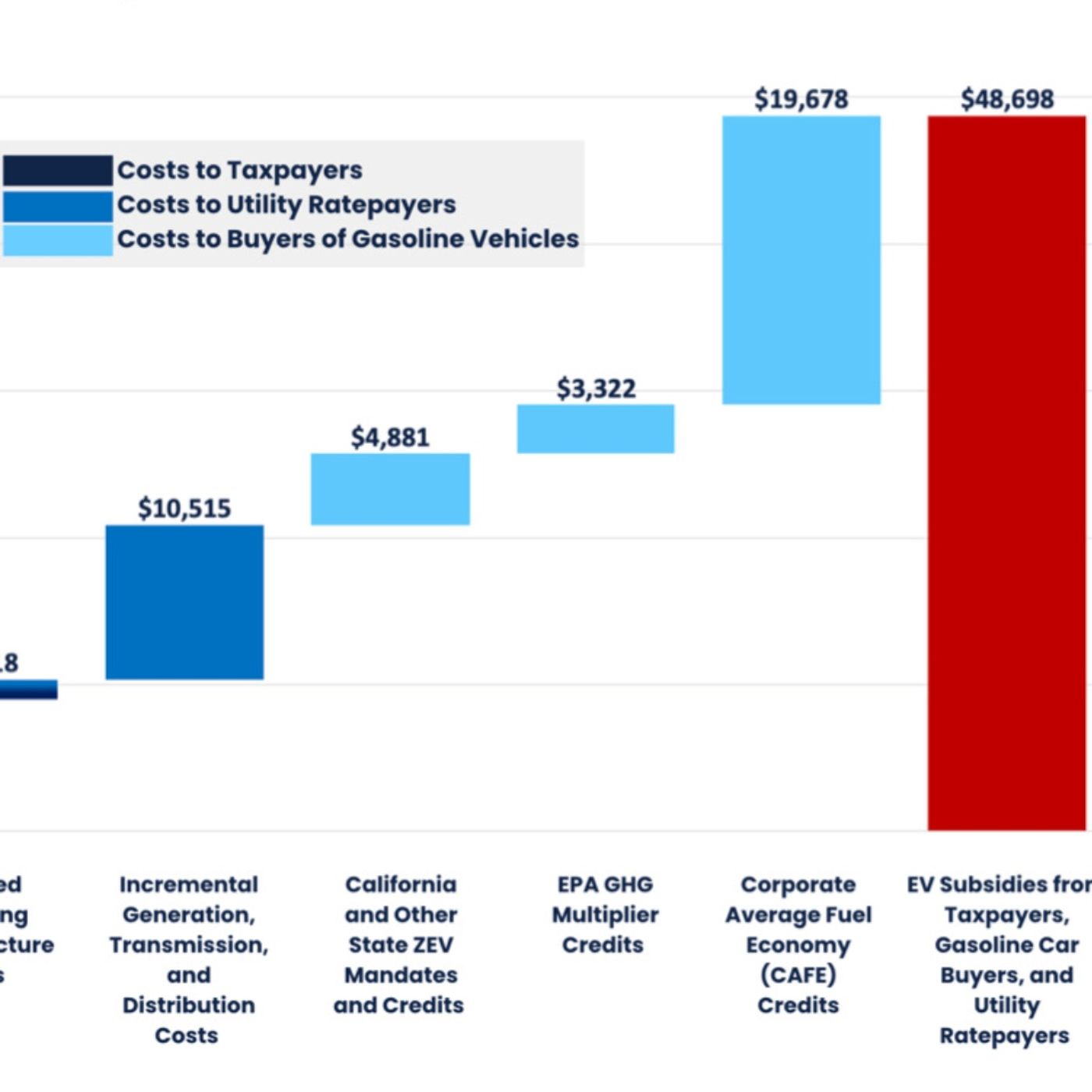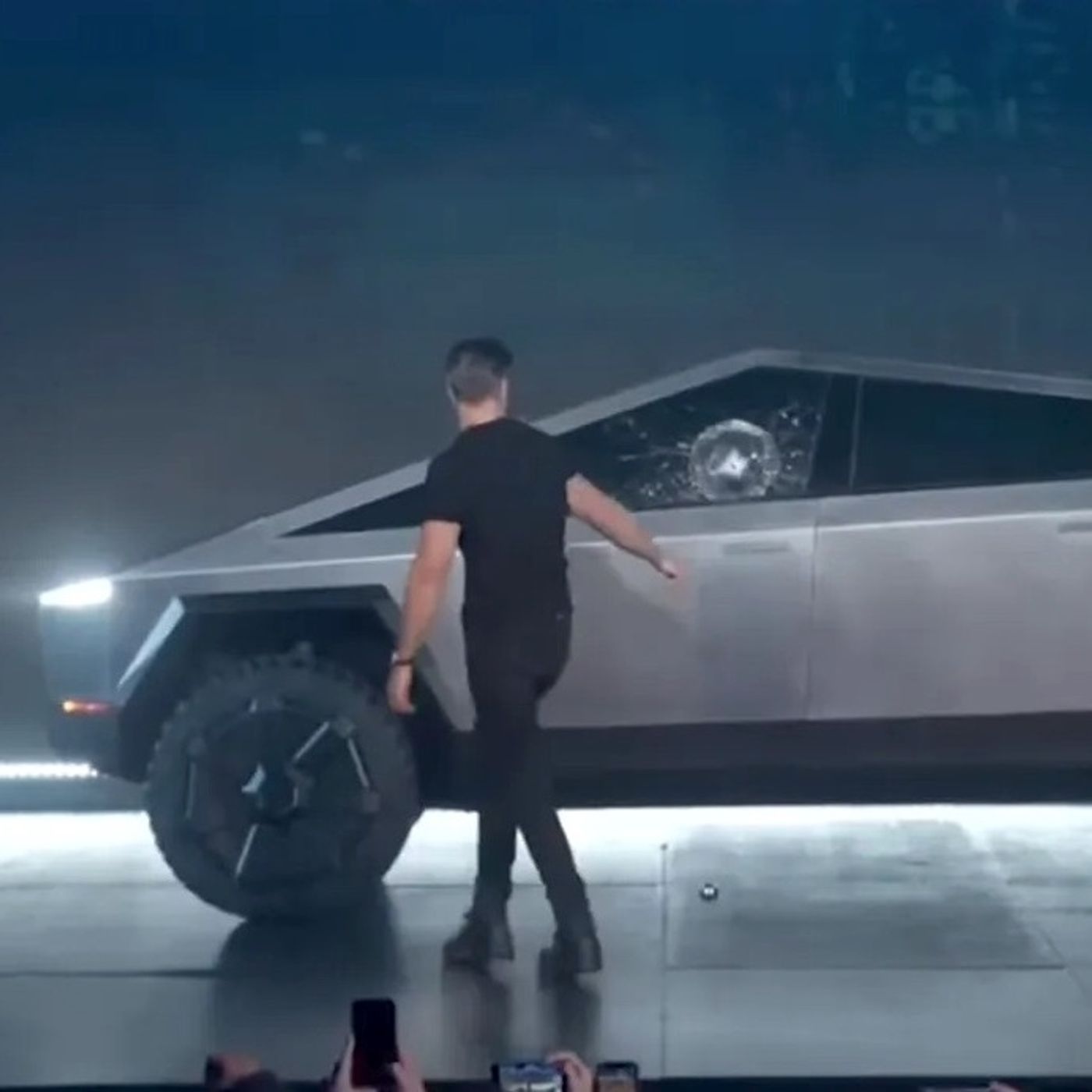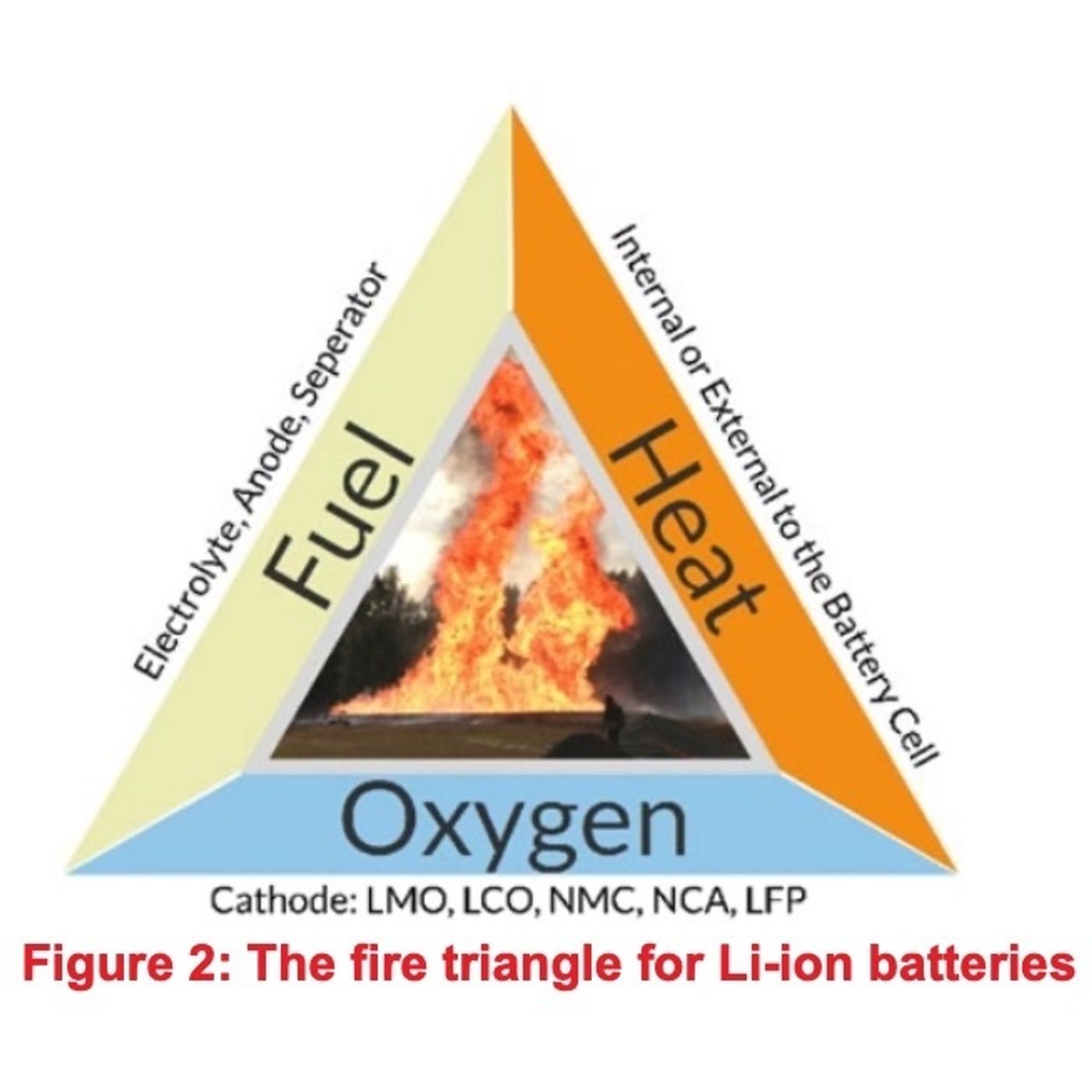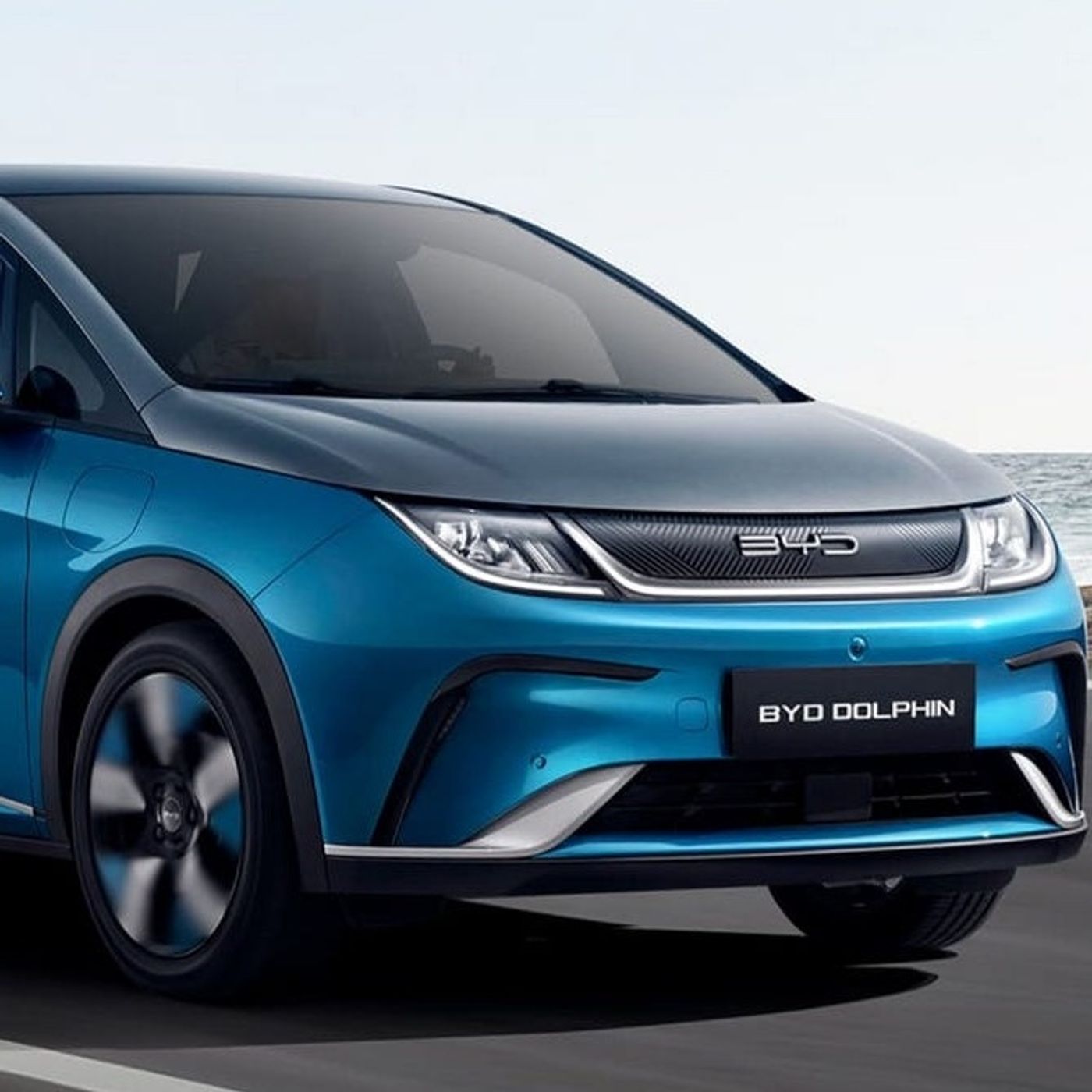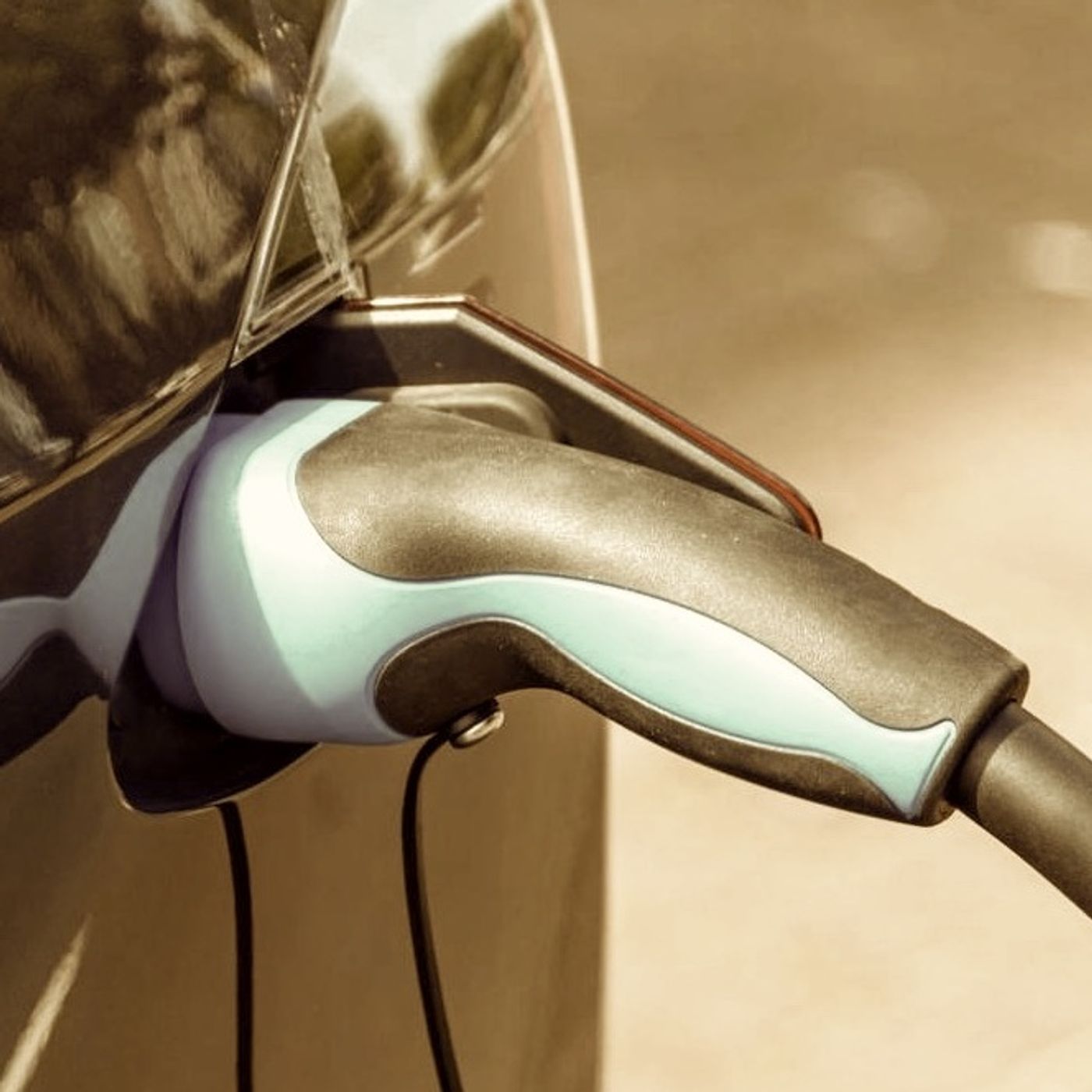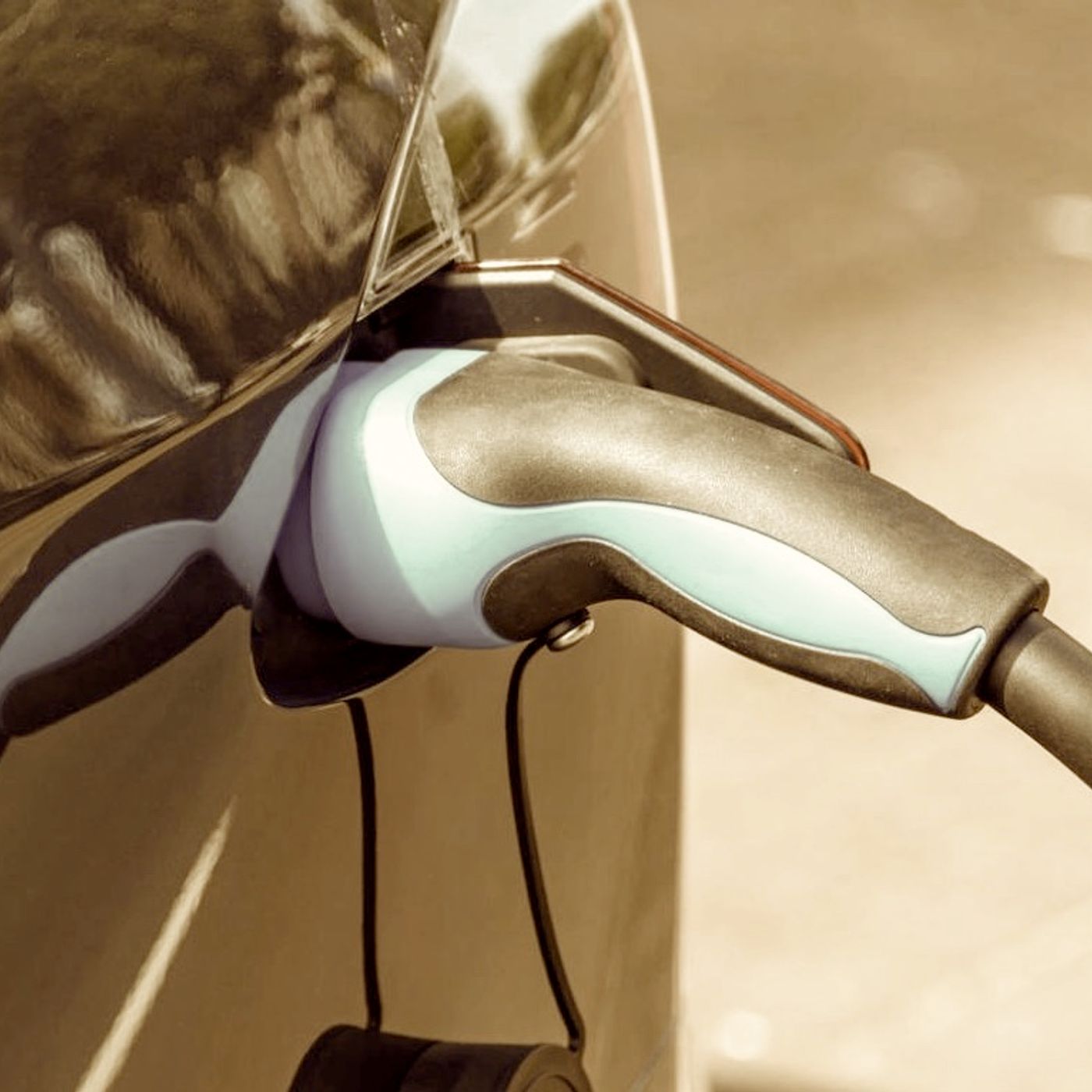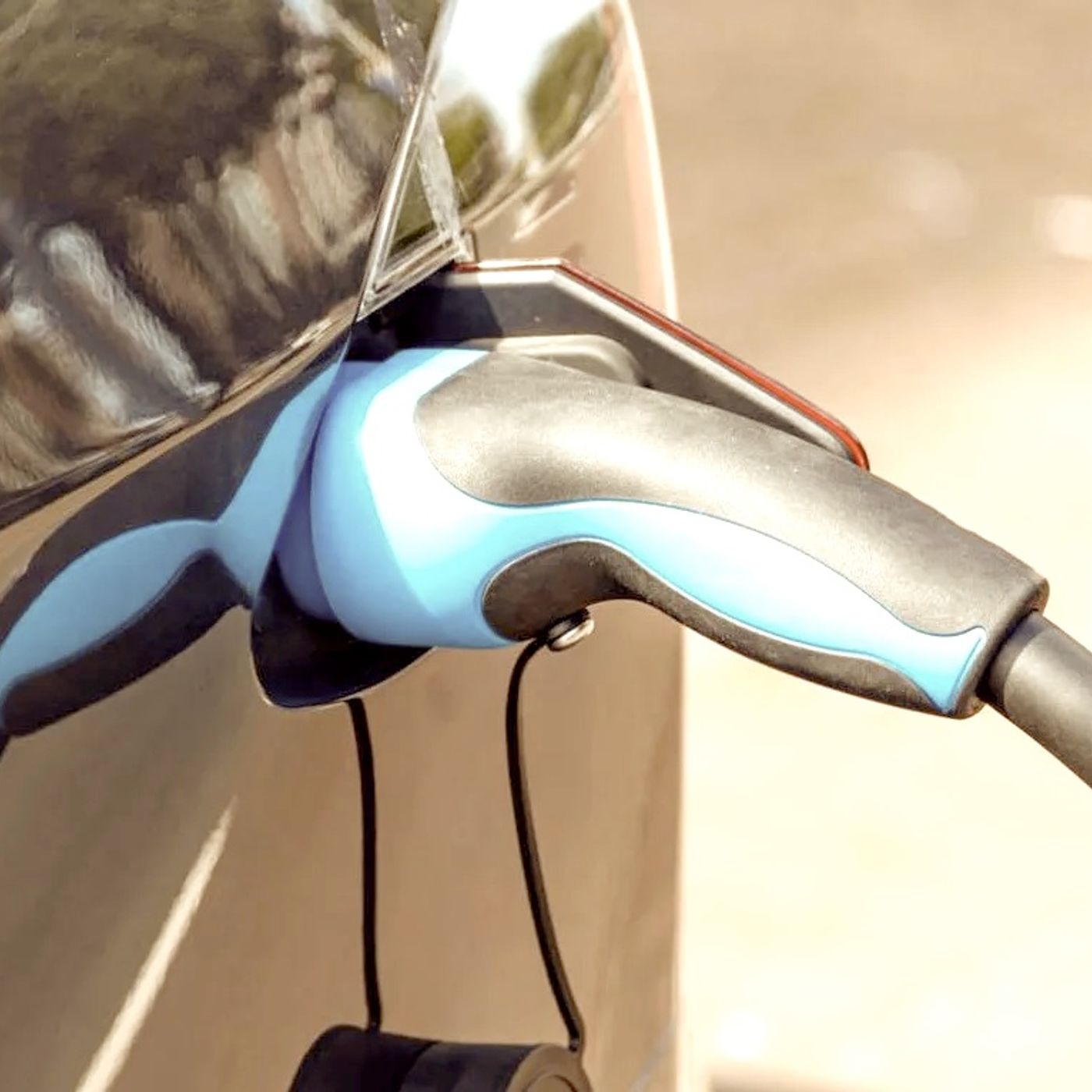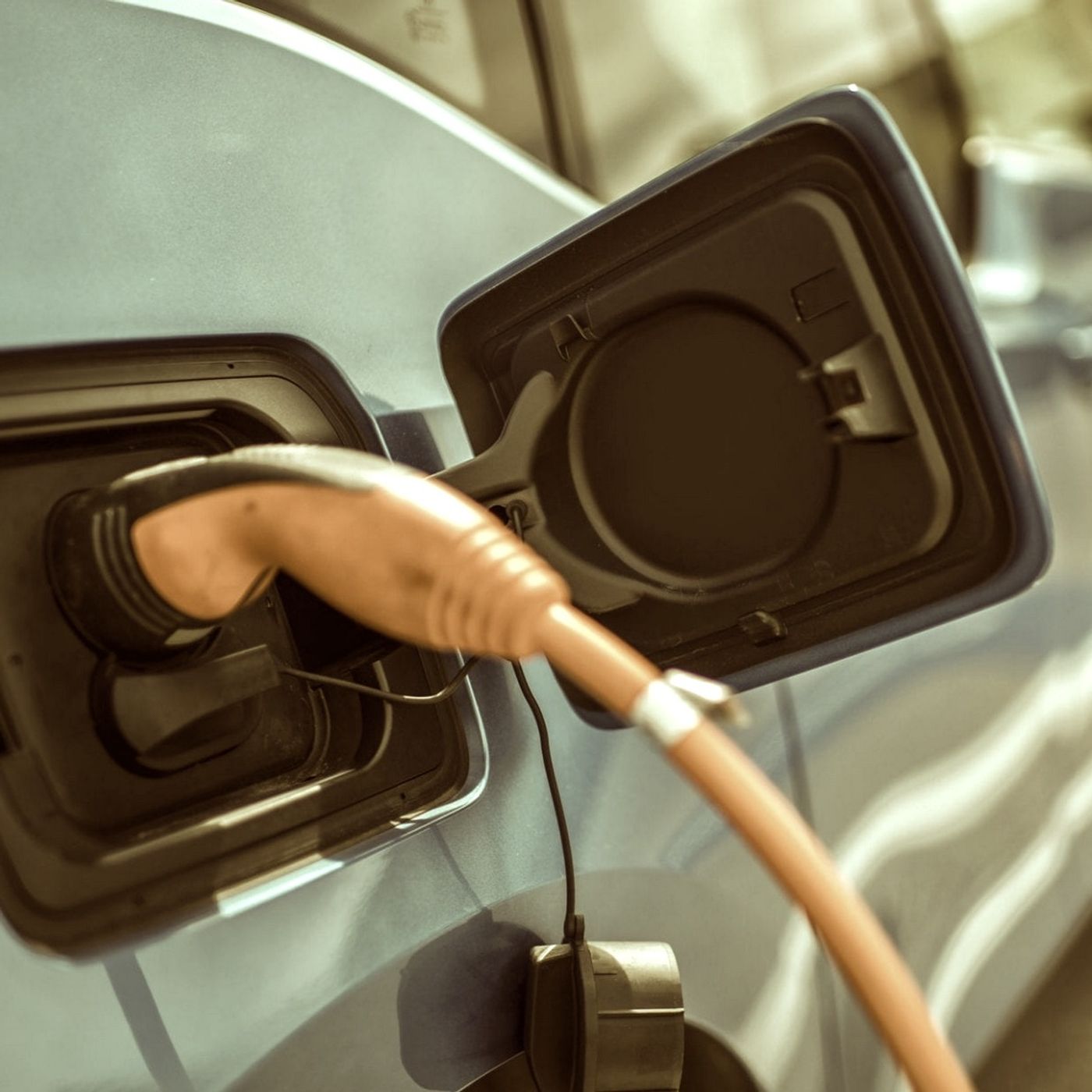Discover The Covexit Podcast
The Covexit Podcast

The Covexit Podcast
Author: JPK
Subscribed: 59Played: 1,500Subscribe
Share
© Copyright JPK
Description
Welcome to the Covexit Podcast. We bring you independent news and policy analysis about selected important issues in the aftermath of C19. Topics are to include but not be limited to electrical vehicles and sustainable food and human oriented economic development.
We cover key developments from all over the world. We strive at empowering you with the best available knowledge. The podcast is hosted by Jean-Pierre Kiekens, a development economist, engineer and former university lecturer.
Recent articles are now found at http://covexit.substack.com
(Important: The podcast is presented strictly for information purposes. For any medical advice, please contact your medical doctor or health care provider)
We cover key developments from all over the world. We strive at empowering you with the best available knowledge. The podcast is hosted by Jean-Pierre Kiekens, a development economist, engineer and former university lecturer.
Recent articles are now found at http://covexit.substack.com
(Important: The podcast is presented strictly for information purposes. For any medical advice, please contact your medical doctor or health care provider)
50 Episodes
Reverse
When one thinks about electric vehicles, one thinks immediately about Tesla and Elon Musk. This has been so for the past 15 years.Musk’s vision for EVs is dominant and extremely influential. But there is now a new, and important, voice, in the person of Luca de Meo, who is the new CEO of the Renault Group and its EV Ampere division.The two CEOs have, on key points, very differing visions, and it’s important to contrast them.The contrast is also somewhat geographical: Musk’s vision tends to be very American while de Meo’s vision is very European.Source article: https://covexit.substack.com/p/renault-ampere-ceo-luca-de-meo
Today, what about comparing the incomparable?What about comparing apples and oranges? What a weird idea you will say! So let’s explain.Both apples and oranges contribute to your nutrition. They largely fulfill the same function.When it comes to cars, we need to think about their main function, which is to bring yourself and passengers, possibly with a cargo, safely, from A to B.With electric vehicles, a major issue is that big, heavy, vehicles, such as large sedans, trucks, SUVs, lorries, etc. require especially heavy battery packs, because of the inherent low energy density of existing batteries.Electric vehicles require therefore more energy to be displaced than their equivalent internal combustion engine or hybrid counterparts. And this increased energy obviously needs to come from somewhere.In addition, while vehicles are essentially aimed at bringing you from A to B, there has been a trend, over the past 50 years or so, towards bigger, heavier, and pricier, vehicles, such as SUVs, even when such overweight, oversized vehicles were not needed to fulfill their core function.It’s against this background that the present post needs to be seen. We contrast the big heavy CyberTruck, using the currently available (even if not official) specifications, with a relatively light, small and affordable internal combustion engine vehicle, that is very popular in France - the Dacia Sandero.The analysis shows what common sense tells us, i.e. the small, light and energy efficient vehicle is much more environmentally friendly than the truck, even if the latter is full electric.But guess which one of the two will be prohibited on the EU market in 2035?The post can be found at: https://covexit.substack.com/p/cybertruck-versus-sanderoEnjoy the podcast.
This new series of talks with Dan McTeague & Jean-Pierre Kiekens is about electric vehicles and their multiple implications for energy, mobility, affordability, economic development and public policy.While electric vehicles are being vigorously promoted by governments, particularly in North America and in Europe, the implications of this rapid transition to such vehicles are little understood. This series of talks, geared towards both the general public and policy makers, aims at discussing those implications and help understand the issues, challenges and opportunities associated with transitioning to EVs.The talks involve primarily Dan McTeague and Jean-Pierre Kiekens, yet guest experts will also participate. Dan McTeague is a well-known energy expert, President of Canadians for Affordable Energy and a former member of the federal parliament in Canada.Jean-Pierre Kiekens is a policy analyst with background in engineering and economic development - a topic he lectured in Belgium prior to moving to Canada.The talks will initially center on 10 topics identified as particularly important. The talks will be content rich yet be typically limited to 30 to 40 minutes.Additional sessions, with guest experts, will take place afterwards.The talks will be available both as videos and as podcast episodes, on platforms such as Apple and Spotify.This first talk presents an introduction to the series of talks and to the 10 topics to be discussed afterwards.View the video at: http://LetsTalkEVs.com
Over a 10 year period, the report finds that EV ownership would cost a staggering $48,698 more without the billions of dollars of governmental favors to manufacturers and owners.The report estimated at US$17.33 per gallon the “true cost of fueling an EV, including extra charging costs and subsidies.”See article and report link at: https://covexit.substack.com/p/the-true-costs-of-electric-vehicles
Recent progress with Sodium-Ion batteries makes them suitable for electric vehicles, with decisive advantages over existing technology. Production of EVs with these new batteries has started in China. This podcast episode explores this extremely important development for mobility.Here is the Substack article's last section, offering concluding remarks:Sodium-Ion batteries may be, or actually are, the EV revolution in the making.All the EV manufacturers should now aggressively work to introduce this technology into their vehicles line-up, similarly to what Tesla recently did with LFP technology.Talking about Tesla, the company can certainly phase in efficient Sodium-Ion batteries within a reasonable time frame of one or two years, and implement it for all its base-models, including its CyberTruck.BYD is leading the way with the Seagull and the Dolphin but will likely pursue the Sodium-Ion route with additional models.Likewise, other producers such as Ford, VW, Stellantis, GMC, should adopt this technology, and further improve it.While the energy capacity gap with Lithium based batteries has already been reduced, there is still scope for improvement of the technology.It must be noted that existing battery factories can be retro-fitted to produce Sodium-Ion batteries. No big capital expenditures would be needed.Sodium-Ion batteries is a major technological change in the world of EVs, and should have huge, positive, impacts for all EV manufacturers.Of course, adopting these batteries will have considerable implications in terms of the supply chain for the required minerals and for future investments.For example, the multi-billion $ investments recently decided upon in Canada for battery manufacturing will need to be thoroughly revised or reconsidered, in light of this new technology.Without any reliance on minerals such as Lithium and Cobalt, which have well documented negative environmental and social impacts, like child labor in Africa in the case of Cobalt and watertable depletion in South America in the case of Lithium, EVs will become much more acceptable to the public.Of immediate concern to EV users are the fire risks, the slow charging time, the range loss in the cold, among other issues, which are making EVs less and less desirable, as there is growing awareness of these issues in the population.The Sodium-Ion technology has the considerable advantage of simultaneously addressing several of those issues, while at the same time reducing the vehicles’ prices.From a public policy perspective, Sodium-Ion batteries can be expected to make EVs much more appealing to growing numbers of drivers. Free and informed choice would rule consumer decisions rather than the mandates, subsidies and other market distortions presently implemented by governments.The very reputation of EVs is actually at stake, as there are just too many issues with them and their current batteries. Anyone can easily understand they are not the “clean” or “green” vehicles that governments and other EV promoters pretend.If adopted, the Sodium-Ion battery technology may well be the decisive factor that will make the EV experiment succeed.See the full article at: https://covexit.substack.com/p/now-is-the-time-for-sodium-ion-batteries
“We dug out our grave with CyberTruck” declared Elon Musk just days ago.This baffled many, yet did not come as a surprise to others. It’s nearly 4 years ago that the vehicle was unveiled. There was huge excitement at the time. Imagine: an electric truck, with a completely novel look, a decent range and competitive pricing.But while there is still excitement, there appears to also be real problems with the vehicle - as Musk would not have used used the expression "We dug out our grave."In this podcast episode, we review the huge problems experienced by Tesla's competitors in the nascent EV truck market.Then we move to the issue of batteries, which are the Achille heel of EVs in general, and (heavy) EV trucks in particular, which require lots of power to be displaced.While Tesla is using a house-made lithium-based battery for the CyberTruck, we argue that another technology would be much more appropriate, especially for its base version.Actually, the technology would be much more appropriate for the base versions of all Tesla models, and also for other automakers.The technology, which is already used by China-based leading EV producer BYD, consists of lithium-free Sodium-Ion batteries, which are much cheaper and much safer, among many advantages.Sodium-Ion batteries appear to be the future of EVs, and Tesla may be missing the boat.It's all explained in this podcast episode, and in this articlehttps://covexit.substack.com/p/saving-the-cybertruck
In the aftermath of the Luton airport car park fire catastrophe, let's have a look at a recent detailed report about fire risk and possible mitigation measures.The report, titled “Covered car parks - fire safety guidance for electric vehicles,” produced by consulting firm Arup on behalf of UK’s Department for Transport, and published this July 2023, delves into the details of car park fire risks and mitigation.The report, which focuses on electric vehicles and EV charge points, but does not look in details at hybrids, including plugin hybrids, offers lots of most interesting content to understand the fire risks associated with electric vehicles and charging stations. It discusses a range of possible mitigation measures.The full report is worth reading, and reading should certainly not be limited to the executive summary (often a bad habit of executives! :) as the most interesting content is in the detailed analysis.Following highlights of the report, implications of the report findings are discussed. Reference is made to new offerings from China of small cars with ion-sodium batteries, known to pose lower fire risk, and to EV sluggish sales of EVs in the US, where EVs are piling up at dealerships.Substack: https://covexit.substack.com/p/ev-car-fire-risk-mitigation
Australian Auto Expert John Cadogan just released an extremely informative video, with practical advice about what to do in case you get caught into a car park fire or if your vehicle catches fire.Here is the transcript of his video, starting at minute 22, which you should really watch, as his practical, down to earth advice, is full of common sense and could save your life and that of other passengers, or at least prevent injuries.As he stresses in the video, “your IQ takes a little holiday in circumstances such as those” so it’s a good idea to learn the key steps to take in such situation.The first part of the video by Auto Expert John Cadogan is about the Luton fire and what caused it, mentioning past incidents with Range Rover vehicles.Cadogan is very skeptical about the (current) official version of the Luton catastrophy and explains, in detail, why.He also highlights the issue of car insurance costs, which may go through the roof, as we previously discussed on the covexit substack blog.https://covexit.substack.com
We dive here into market considerations. What will the market for EVs look like in the US and Canada in the next years. Will the market demand exist for a massive EV industrial development in Ontario?The Canadian automotive sector, which is mostly located in Ontario, has always been highly dependent on the existence of a strong market, and of course on market access, in the US. Will such high reliance on the US market be possible with made-in-Canada electric vehicles? And will the actual market demand for EVs be as high as anticipated to justify the recently announced massive investments and subsidies?We will look at these considerations in this analysis, which stresses the critical role of national-level politics, both in the US and in Canada, for the future of EVs in North America. Other important factors, such as the competition from China and disparate electricity prices, are also looked at. We then show that the report by Canada’s Parliamentary Budget Officer about the billions of dollars of subsidies for battery plants in Ontario, while highly critical of the governmental decisions, actually underestimates the risks of those investments.Article at this link: https://covexit.substack.com/p/considerable-market-uncertainties
There is a massive push for electric vehicles in Ontario, with billions and billions of taxpayers money being poured into them. But does that make any sense? Let's attempt to figure this out. This analysis focuses on Ontario, but is to varying extents applicable to other jurisdictions, as the push towards EVs is found not only in Ontario and Canada, but also in other jurisdictions such as the UK and the European Union.I didn’t pay attention before, but, in Ontario, there are two colors of license plates. The regular ones with black or blue letters, and the ones with green letters, which are specifically for electric vehicles. The message is clear: EVs are good; the other cars are bad.But is there actually something of any value in these green license plates, introduced back in 2010? Do they reflect a genuinely green product, a genuinely green mode of transportation? Or are they just a green-wash, a virtue signalling ploy, by the government, aimed at marketing those vehicles?Of course, it’s not just the licence plates. Ontario politicians are now convinced that a transition to EVs is absolutely necessary to save the planet, to make a difference in fighting climate change. They claim that the future of cars is necessarily electric. They are throwing billions and billions of taxpayers dollars at it.So let’s have a look at all those policies and initiatives in Ontario, which is one of the jurisdictions, in the world, that is the most active at pushing electric vehicles. Let’s attempt to figure out if this makes any sense.Spoiler Alert: Contrary to what you may have been told, there are no zero-emission vehicles. Zero-emissions vehicles don’t exist. Both electric vehicles (EVs) and internal combustion engine (ICE) vehicles emit CO2 throughout their lifecycle.In the first part, we will provide context, look at the carbon emissions from cars in the province, look at the importance of the automotive sector in the province, describe the quick evolution of policies encouraging EVs, look at the massive subsidies, both provincial and federal, decided upon to push EVs in Ontario, including through multi-billion battery giga-factories.In the second part, we will look at issues of market access in the US and Europe, at competition from China, at the actual domestic market for EVs in Canada, at the great variability of electricity pricing among Canadian provinces, at opportunities and issues with mineral procurement for batteries, at the Canadian Parliamentary Budget Officer recent, highly critical report, questioning the multi-billion subsidies into 2 battery giga-factories in the province.We will also attempt some conclusions and predictions, based on the analysis, which confirms our previous findings that there should absolutely be no rush to transition to EVs. There are indeed much simpler, cost effective, and actually measurable, means to cut CO2 emissions, without creating havoc, for the decades to come, in the automotive, transportation and energy sectors.See this and other articles at this link.
The key argument advanced by the proponents of electric vehicles is that they greatly reduce CO2 emissions. However, this doesn't seem substantiated, and this has major public policy implications.When you read the writings of organizations promoting a bold, rapid transition towards electric vehicles, the core argument is the reduction in CO2 emissions, as a way to combat global warming.While the most intellectually dishonest writings simply and falsely claim that electric vehicles are zero emission vehicles, others will acknowledge that some emissions are associated with EVs, yet they will argue that EVs will generate important CO2 emission savings.For example, the influential C40 global network, which encompasses nearly 100 mayors of major cities in the world, and is presided by London mayor Sadiq Khan, claims that:“Each electric vehicle that displaces a conventional car saves approximately 1.5 tons of CO2 per year which represents a 62% reduction compared to a petrol-powered car and a 53% reduction compared to a diesel-powered car.”In this podcast episode, we will see that this claim does not hold water.We will see that, for the foreseeable future, the only realistic solution, if one is serious about it, is to redirect our efforts out of electric vehicles and towards highly efficient internal combustion engine vehicles.See article and other related EV articles at: https://covexit.substack.com/
After all, range anxiety is well known when it comes to electric vehicles. And the industry is working hard to improve ranges, we hear. So why bother?It wasn’t serious academic articles but rather some videos, gleaned here and there on the web, that brought me to write this post, a bit for the fun, but also to illustrate the very peculiar situation in which the car industry and society in general, i.e. everyone of us, are now confronted to with this push for EVs in a number of countries.With gasoline and diesel cars, range is not really an issue. Car manufacturers can easily increase the dimension of the tank, to ensure sufficient range. As previously discussed, energy density of such tank is about 100x superior to that of a battery. There is no range anxiety with conventional vehicles, it’s just one of the many questionable novelties brought by the EV paradigm.Also not existing with conventional vehicles are related issues such as long charging time, scarcity of the charging stations, impossibility to secure conventional help, with just a jerrycan of gasoline or diesel, in case you run out of gas, etc. etc.Ladies and gentlemen, with electric vehicles, everything changes! But not for the better!
There is presently a massive push in many countries, in the EU, North America and elsewhere, to increase the number of electric vehicles (EVs) and to progressively phase out internal combustion engine (ICE) vehicles. This massive push relies on massive subsidies, stringent regulations and sometimes protectionist measures, as EVs presently are not cost competitive and are far from offering the same convenience and driving qualities as ICE vehicles, such as long range, rapid fueling time, good affordability, to name just those. Does this massive EV push make sense? Can it be justified? This is what we analyze here. What was already known, yet ignored by policy makers, is that EVs are far from being zero-emission vehicles. They actually generate considerably more emissions for their manufacturing and their massive batteries. There are also very inconvenient implications such as environmental degradations and quasi-slave labor associated with the mining of the massive quantities of minerals needed for the batteries. The analysis also shows that, when compared to the best available ICE vehicles, in terms of fuel efficiency, litres per 100 km, miles per gallon, the EVs actually emit more CO2, not less, than the equivalent ICE vehicles.
This is the anniversary interview of the landmark session we convened with Dr. Peter McCullough and Dr. Geert Vanden Bossche in March 2021. The two distinguished experts discuss the most current developments and issues with COVID-19, vaccination and early treatment. Specifically discussed by Dr. Geert Vanden Bossche is Omicron and its implications. Despite its short duration, the interview is packed with some of the most relevant information for understanding the possible evolution of COVID-19. Both experts also formulate their most urgent recommendations. The interview is made available in audio only. The 2011 webinar can be found at: https://rumble.com/c/covexit
In this interview with internationally renowned Dr. Shankara Chetty from South Africa, we discuss the Omicron variant, which is taking the world as a storm. Is this variant to be feared, or could it actually be a positive development in this pandemic, as mostly inducing mild disease, yet conferring post-covid natural immunity. These are among the timely and critically important aspects we discuss.Dr. Chetty is a Family General Medical Practitioner in South-Africa, with considerable experience with the outpatient treatment of COVID-19, having treated so far nearly 8,000 patients, in his outpatient practice, without any of them requiring hospitalization or even oxygen. Dr. Chetty holds a degree in medicine and surgery and also has advanced education in genetics, advanced biology, biochemistry and microbiology.See our previous interview with Dr. Chetty, along with other experts such as Dr. McCullough, Dr. Urso, Dr. Kory and Dr. Cole, at https://covexit.com/category/videos/
In this second part of the interview,
Mark McDonald, MD & Psychiatrist,
comments on key current issues, including asymptomatic testing; the false sense of safety given by the vaccines; virtue signalling; critical thinking; home schooling; university education; last year’s American Frontline Doctors’ event in Washington, DC; the reactions to Dr. Stella Emmanuel’s speech; medical freedom & more.
This is Part 1 of my interview with Dr. Mark McDonald, Medical Doctor and Psychiatrist from California. We discuss the imposition of unnecessary and potentially harmful vaccines to children, the passivity of the health authorities regarding the substantial safety issues associated with the injections, the mandates, the passports and other coercive measures; the implications for families, which can be devastating; and the evolution of our societies towards authoritarianism. In Part 2, we will discuss education and other crucial matters for the future of our children and of society.
In this second part of our interview,
Dr. John Littell tells us how the Florida Covid Summit came to life. He shares with us what were, from his perspective, highlights of the event, which attracted nearly 1,000 delegates, making it the largest C19 conference ever in the world. Dr. Littell also further comments on his hopes for concrete policy changes in Florida.
In this first part of our interview, Dr. John Littell, MD, tells us here about his early days in treating COVID-19 early, about his perspectives regarding vaccination, especially of children, and about the the trends in COVID-19 policy in Florida.
In this interview with internationally renowned cardiologist Dr. Joel Kahn, we discuss early outpatient treatment; adverse events such as heart attacks, pericarditis and myocarditis; risks for children, adolescents and young adults; and risks associated with altitude while flying. Dr. Kahn, who is also an expert in plant-based nutrition and longevity, also shares his top 3 favorite plants to incorporate in our meals.




